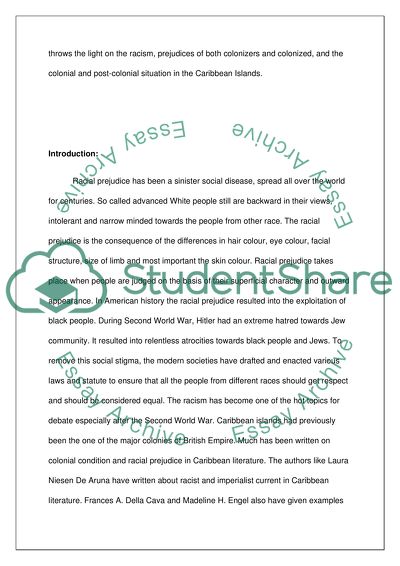Cite this document
(“Prejudice and the Colonial Condition in Post-Colonial Caribbean Essay”, n.d.)
Retrieved from https://studentshare.org/english/1395668-prejudice-and-the-colonial-condition-in-post-colonial-caribbean-literature
Retrieved from https://studentshare.org/english/1395668-prejudice-and-the-colonial-condition-in-post-colonial-caribbean-literature
(Prejudice and the Colonial Condition in Post-Colonial Caribbean Essay)
https://studentshare.org/english/1395668-prejudice-and-the-colonial-condition-in-post-colonial-caribbean-literature.
https://studentshare.org/english/1395668-prejudice-and-the-colonial-condition-in-post-colonial-caribbean-literature.
“Prejudice and the Colonial Condition in Post-Colonial Caribbean Essay”, n.d. https://studentshare.org/english/1395668-prejudice-and-the-colonial-condition-in-post-colonial-caribbean-literature.


